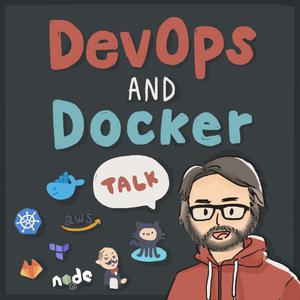
DevOps and Docker Talk
Bret Fisher
Interviews and Q&A from my weekly YouTube Live show.
- 49 minutes 19 secondsAWS Finch: The Minimal Local Container Solution
Bret and Nirmal are joined by Phil Estes of AWS to show us the Finch project, which bundles the best open source tools for building and running containers locally. Now it runs on macOS and Windows WSL2.
We've been talking with Phil about this show for months, and now that Finch has come to Windows, we thought it was the best time to clue you in as to why AWS created the Finch project and what it does.You've probably heard of containerd, the most popular container runtime on the planet and BuildKit, the best way, in my opinion, to build container images. Those two work hand in hand in Docker and many other container tools. But you might not have heard of nerdctl or Lima, which are also open source tools that work with containerd and BuildKit to help you run containers locally in a virtual machine. Well, AWS had the idea of making an easy installer for these four tools. That's how Finch was born.
Finch is not meant to be a replacement of your existing way to run containers. The tools it installs are a bit of a minimum feature set, if you will, and more focused on providing people the exact tools AWS uses in its container platforms, mainly containerd and BuildKit, which are everywhere in AWS. Rather than building something that's feature equivalent to other local container solutions like Docker Desktop and Rancher Desktop, Finch keeps it simple and does the bare minimum.
If you just want an easily installable and minimal way to build and run local containers at the command line with no goofy, high-end fancy features, pure open source and just on Mac and Windows, at least at this point, you should give Finch a try.
Be sure to check out the live recording of the complete show from February 22, 2024 on YouTube (Ep. 255).
★Topics★
Finch Website
Bret's local container runtime spreadsheetCreators & Guests
- Phil Estes - Guest
- Cristi Cotovan - Editor
- Beth Fisher - Producer
- Bret Fisher - Host
- Nirmal Mehta - Host
- (00:00) - Intro
- (00:35) - What is Finch?
- (03:53) - Phil's History with Docker and Finch
- (07:59) - Deep Dive into AWS Finch Project
- (11:41) - How do the Components Tie Together
- (25:31) - Finch's Position in the Container Ecosystem
- (26:47) - Finch's Capabilities and Comparisons
- (27:45) - VM Management and Lima Integration
- (37:51) - Finch's Roadmap and Community Engagement
- (41:49) - How Does Finch Connect to Lima?
- (42:45) - Potential Lima Conflicts with Finch
- (46:38) - Getting Started wtih Finch
You can also support my free material by subscribing to my YouTube channel and my weekly newsletter at bret.news!
Grab the best coupons for my Docker and Kubernetes courses.
Join my cloud native DevOps community on Discord.
Grab some merch at Bret's Loot Box
Homepage bretfisher.com19 April 2024, 5:54 am - 49 minutes 56 secondsPortainer for Kubernetes, Docker, Swarm, Edge, and IoT
Bret is joined by Neil Cresswell, CEO and co-founder of Portainer, to show us new features in Portainer and how it can manage, deploy, and orchestrate all your container workloads from a single Docker Engine, all the way to multi-cluster and IoT Kubernetes deployments.
Portainer is much more comprehensive than you might think. Docker on the Edge, Podman, Kubernetes, in the cloud, in hybrid, you name it; it seems that Portainer supports it. In the show, we also get some updates on new things that have happened in the last couple of years, including adding GitOps support to Portainer, the ability to deploy Kubernetes nodes, and infrastructure.Be sure to check out the live recording of the complete show with demos from February 29, 2024 on YouTube (Ep. 256).
★Topics★
Portainer Website
Portainer on YouTube
Portainer on X
Portainer on LinkedIn
Portainer Demo: Kubernetes the "easy" wayCreators & Guests
- Cristi Cotovan - Editor
- Beth Fisher - Producer
- Bret Fisher - Host
- Neil Cresswell - Guest
- (00:00) - Intro
- (02:50) - How Portainer Started
- (05:38) - Portainer's Strongest Use Cases
- (08:56) - Portainer's Cluster Provisioning
- (12:42) - Docker Desktop and Portainer
- (15:22) - GitOps with Portainer
- (18:43) - K2D Teaser
- (21:34) - Portainer Across Different Environment Types
- (25:21) - Portainer's Focus on IoT and Edge
- (29:01) - Portainer's Evolution and Future Developments
- (35:03) - Passwords and Secrets Capabilities in Portainer
- (40:15) - AI Capabilities in Portainer
- (42:06) - Portainer Editions, Licenses and Pricing
- (43:09) - Using Traefik for Ingress
- (44:53) - What's Next for Portainer?
You can also support my free material by subscribing to my YouTube channel and my weekly newsletter at bret.news!
Grab the best coupons for my Docker and Kubernetes courses.
Join my cloud native DevOps community on Discord.
Grab some merch at Bret's Loot Box
Homepage bretfisher.com5 April 2024, 5:43 am - 47 minutes 57 secondsOpen Source Codespaces with Daytona
Bret and Nirmal are joined by Ivan Burazin and Chad Metcalf to debut Daytona, an open source "codespaces equivalent."
Daytona is a development environment manager designed to automate all the tedious steps a developer needs to perform to set up their development environment. "Essentially, it transforms any machine into a codespaces equivalent."Where Daytona is actually starting in the enterprise is focusing on large dev environment solutions and management of those, and then trickling down to individual developers. So there are two very similar solutions to a problem of many developers and their varying ways that they set up their environments for development, but they're coming at it from two ends of the spectrum.
Be sure to check out the live recording of the complete show with demos from March 7, 2024 on YouTube (Ep. 257).
★Topics★
Daytona website
Daytona on GitHub
Why Daytona OSS'd
DIY GuideCreators & Guests
- Ivan Burazin - Guest
- Chad Metcalf - Guest
- Bret Fisher - Host
- Nirmal Mehta - Host
- Beth Fisher - Producer
- Cristi Cotovan - Editor
- (00:00) - Intro
- (06:33) - CodeAnywhere
- (07:50) - Introducing Daytona: Revolutionizing Dev Environments
- (13:54) - Demo
- (21:07) - Daytona's Automation Magic
- (22:49) - Comparing Daytona with DevPod
- (25:15) - Daytona's Roadmap and Beyond
- (27:01) - Dev Environments and IDEs
- (39:52) - AI with Daytona
- (44:05) - Getting Started with Daytona
- (44:35) - Getting Involved in Daytona
- (47:00) - Features About to Ship in Daytona
You can also support my free material by subscribing to my YouTube channel and my weekly newsletter at bret.news!
Grab the best coupons for my Docker and Kubernetes courses.
Join my cloud native DevOps community on Discord.
Grab some merch at Bret's Loot Box
Homepage bretfisher.com22 March 2024, 5:23 am - 46 minutes 15 secondsPostgres in Containers
Bret and Nirmal are joined by Lukas Fittl of pganalyze to dive into Postgres in containers, in production, and in CI.
Lukas is an expert and founder of pganalyze, and I invited him on the show to explain a lot of this to us and catch us up with what's going on in the Postgres community, particularly when it comes to containers and production.We dive into everything around containers with Postgres, some of the new stuff going on in Postgres Land, including tuning and stuff I didn't even know about Postgres, including storing NoSQL data, vector databases for AI and more.
Be sure to check out the live recording of the complete show from February 15, 2024 on YouTube (Ep. #254).
★Topics★
pganalyze website
pganalyze YouTube channel
pgvector
cloudnative-pg
Crunch Postgres for Kubernetes
CockroachDBCreators & Guests
- Bret Fisher - Host
- Lukas Fittl - Guest
- Nirmal Mehta - Host
- Cristi Cotovan - Editor
- Beth Fisher - Producer
- (00:00) - Intro
- (01:59) - Is Postgres Underrated?
- (04:18) - What is pgAnalyze?
- (05:02) - Database Performance Tuning
- (11:11) - Postgres in Containers
- (19:44) - Opinion on kubegres and other operators in managing HA
- (25:03) - The role of Database Administrators and Data Engineers
- (31:54) - Running Postgres HA across multi-cluster
- (39:23) - What does pgnalyze do?
- (44:45) - The hardest operational problem running Postgres in containers
You can also support my free material by subscribing to my YouTube channel and my weekly newsletter at bret.news!
Grab the best coupons for my Docker and Kubernetes courses.
Join my cloud native DevOps community on Discord.
Grab some merch at Bret's Loot Box
Homepage bretfisher.com8 March 2024, 6:08 am - 52 minutes 8 secondsBest of DevOps 2023
Bret and Nirmal are joined by Melissa McKay, Developer Advocate at JFrog and Docker Captain, to discuss the best and worst of 2023.
We recorded this episode in December of 2023 where we talked through our favorite tools. Whether a DevOps oriented tool or not, it just might be the things we like to use on containers and in Cloud Native DevOps. This is a fun episode of three friends talking about what they love. And I sometimes I think these are the best shows because we didn't plan them out. I hope you enjoy listening to it as much as we did recording it.The live recording of the complete show from December 14, 2023 is on YouTube (Ep. #245)
★Topics★
Dive Website
SlimToolkit Website
OpenTelemetry Website
eBPF Website
eBPF Documentary
Continuous Delivery Foundation
CDEvents Website
ML Ops Website
Ollama Website
Docker + Ollama
Neo4j Website
Inspektor Gadget Website
Arc Browser
k6 Load testing
Creators & Guests- Beth Fisher - Producer
- Bret Fisher - Host
- Melissa McKay - Guest
- Cristi Cotovan - Editor
- (00:00) - DDT MAIN
- (04:13) - A Little Tool Called Dive
- (09:49) - SlimTooklit from Slim.AI
- (12:11) - OpenTelemetry
- (14:57) - eBPF
- (18:44) - Chainguard Images
- (21:48) - Digestabot
- (25:03) - Looking Forward to 2024
- (27:29) - CDEvents
- (31:32) - MLOps
- (34:58) - Ollama
- (37:30) - WebAssembly
- (38:26) - Inspektor Gadget
- (39:33) - Arc Browser
You can also support my free material by subscribing to my YouTube channel and my weekly newsletter at bret.news!
Grab the best coupons for my Docker and Kubernetes courses.
Join my cloud native DevOps community on Discord.
Grab some merch at Bret's Loot Box
Homepage bretfisher.com23 February 2024, 6:28 am - 37 minutes 37 secondsFaster Dev Feedback and Previews with Livecycle
Bret is joined by Matan Mishan & Roy Razon of Livecycle to discuss developer platforms and how to improve developer collaboration and speeding up feedback and previews.
We talk about the various delays encountered in pull requests due to feedback processes, and how Lifecycle's tools aim to shorten this feedback loop in Docker Desktop, local CLI with Preevy, and automated CI workflows. I like how Lifecycle provides multiple locations and ways to get access to people in the preview environments that really lets you just fit the different parts of the tool into your workflow, as opposed to one way to do everything. It's great for getting feedback quickly during the PR process, rather than making people set up their own environments to test their changes. I also liked their ideas around how the feedback loops can be improved.This episode contains great demos so be sure to also check out the live recording of the complete show from December 21, 2023 on YouTube (Ep. #246).
★Topics★
Livecycle's Website
Preevy Repository
Livecycle Docker ExtensionCreators & Guests
- Bret Fisher - Host
- Matan Mishan - Guest
- Roy Razon - Guest
- Beth Fisher - Producer
- Cristi Cotovan - Editor
- (00:00) - Intro
- (01:57) - Internal Developer Platform: a self-service solution
- (06:38) - Lifecycle and the Docker Extension
- (24:10) - Using GitHub Environments
- (27:46) - First Steps and What's Next
You can also support my free material by subscribing to my YouTube channel and my weekly newsletter at bret.news!
Grab the best coupons for my Docker and Kubernetes courses.
Join my cloud native DevOps community on Discord.
Grab some merch at Bret's Loot Box
Homepage bretfisher.com9 February 2024, 6:04 am - 55 minutes 6 secondsDocker Recap of 2023
Bret and Nirmal are joined by Michael Irwin, DevRel at Docker, to talk about all the products and features Docker shipped in 2023, and what's coming in early 2024.
Michael has been on this show many times as a Docker Captain and now as a Docker employee, and it's always great to dig into the details of the products with someone who's been using them for so many years as an end-user and now staff at Docker.Docker did some big things in 2023, but they also shipped some smaller features that we will help you catch up on in this episode.
The live recording of the complete show from December 28, 2023 is on YouTube (Ep. #247)
★Topics★
Docker 2023 Milestones
Docker Build Cloud
Docker Engine release notes
Docker Compose Watch
DockerCon Playlist
DockerCon Announcements
Compose includes
Docker Scout
Docker GenAI stack
Getting started with GenAI on Docker
Docker acquires MutagenCreators & Guests
- Cristi Cotovan - Editor
- Beth Fisher - Producer
- Bret Fisher - Host
- Nirmal Mehta - Host
- Michael Irwin 🇺🇦 🕊 - Guest
- (00:00) - Introduction
- (02:11) - The Docker Engine
- (04:43) - Performance improvements
- (08:16) - Docker Extensions
- (09:12) - Dashboard and GUI updates
- (12:46) - Docker init
- (17:43) - What's new in Compose?
- (24:33) - Docker Scout
- (36:43) - Docker and AI/Machine Learning
- (43:55) - What's Coming Up in 2024?
- (47:07) - Docker Debug
You can also support my free material by subscribing to my YouTube channel and my weekly newsletter at bret.news!
Grab the best coupons for my Docker and Kubernetes courses.
Join my cloud native DevOps community on Discord.
Grab some merch at Bret's Loot Box
Homepage bretfisher.com26 January 2024, 6:38 am - 55 minutes 6 secondsTailscale Everything
Bret is joined by Alex Kretzschmar to talk about Tailscale, a universal VPN that connects teams, devices, and development environments for easy access to remote resources.
Alex and I talk about projects he's worked on in containers over the years and then we quickly get into Tailscale and talking about why he joined the team there.Tailscale is one of those tools that's hard to put down. I've used it for years to connect my personal devices to my home server lab when I'm traveling or servers I might have on the internet that I run temporarily. It connects them all together in a seamless VPN. The product itself comes up a lot in our Discord server when people are talking about needing some secure remote access to something anywhere in the world.
Tailscale keeps adding more and more features, I can't really keep up, so we had Alex on the show to talk about all the new stuff, including a client for Apple TV, which at first, I didn't quite understand why, but now it totally makes sense; and a Kubernetes operator that does some slick things around connecting engineers on their local machines to clusters. I found Alex at the Tailscale booth at KubeCon this year and invited him on the show to talk about this relatively new yet ubiquitous-feeling product.
The live recording of the complete show from November 30, 2023 is on YouTube (Ep. #243)
★Topics★
Tailscale website
Headscale website
Tailscale Community
Tailscale Docker Mod Blog Post
ID Headers Demo
Devrel DemoCreators & Guests
- Cristi Cotovan - Editor
- Beth Fisher - Producer
- Bret Fisher - Host
- Alex Kretzschmar - Guest
- (00:00) - Tailscale Everything
- (19:37) - Tailscale Licensing
- (28:24) - Tailscale vs Other Networking Products
- (32:33) - Server and Key Exchange
- (33:50) - Does Tailscale Support 'Trunking'?
- (39:20) - Client for Mikrotik
- (40:06) - Docker Integration
- (43:46) - Tailscale Server on Your Own Hardware
- (46:57) - Apple TV Client
- (48:54) - Performance Breakthroughs
- (50:52) - Key Exchange Mechanism
You can also support my free material by subscribing to my YouTube channel and my weekly newsletter at bret.news!
Grab the best coupons for my Docker and Kubernetes courses.
Join my cloud native DevOps community on Discord.
Grab some merch at Bret's Loot Box
Homepage bretfisher.com5 January 2024, 8:05 am - 16 minutes 6 secondsDockerfiles have versions?
I break down why Dockerfile frontends exist and how Docker's build engine "BuildKit" is giving us updated Dockerfile features.
# syntax=docker/dockerfile:1
The TL;DR of this podcast is to add this to your Dockerfiles as the first line, always and forever.
It'll ensure your Dockerfile will have access to the latest v1.x features of the "Dockerfile frontend" feature of BuildKit.
★Topics★
My newsletter on Dockerfile frontends (including links and references)
Creators & Guests- Beth Fisher - Producer
- Bret Fisher - Host
- (00:00) -
- (00:36) - Understanding Docker Files
- (00:47) - The Evolution of Docker Files
- (01:05) - The Importance of Docker File Versions
- (02:20) - The Impact of Dockerfile Standards
- (03:41) - The Benefits of Using the Latest Dockerf ile Parser
- (04:16) - The Challenges of Docker Engine Versions
- (05:18) - The Advantages of Docker Front Ends
- (07:56) - The Role of OCI in Dockerfiles
- (10:18) - Exploring New Features in Docker File Front Ends
- (15:27) - Conclusion: The Future of Docker Files
You can also support my free material by subscribing to my YouTube channel and my weekly newsletter at bret.news!
Grab the best coupons for my Docker and Kubernetes courses.
Join my cloud native DevOps community on Discord.
Grab some merch at Bret's Loot Box
Homepage bretfisher.com29 December 2023, 6:47 am - 57 minutes 48 secondsDagger: CI of the Future?
Application delivery doesn’t have to suck. Bret and Nirmal are joined by Solomon Hykes, the founder or Docker, to talk about Dagger and their application delivery-as-code that runs anywhere.
💥 This episode is brought to you by our valued sponsor and friends at CAST AI! 💥
CAST AI is an all-in-one Kubernetes cost optimization and automation platform that achieves over 60% average compute cost savings without months of onboarding. You get lightning fast autoscaling, downscaling, spot VM support and more with no hit to performance.Use the link below and optimize your first cluster for FREE.
Solomon started Dagger after he left Docker in 2018 with a few other Docker VPs, including Sam Alba and Andrea Lusardi.
Dagger is an innovative startup aimed at simplifying and revolutionizing DevOps automation and software delivery. Created to address Docker's unattended gaps, Dagger streamlines software building, testing, and deployment, exhibiting immense growth potential and wide applications in fostering software ecosystems.
For a few years now, they've been publicly iterating on the idea of a programmable and portable automation system for software building, testing, and deploying.
In this episode, they cover many topics around Docker and Dagger. I've been convinced that I need to start trying out Dagger in my projects.
The live recording of the complete show from November 16, 2023 is on YouTube (Ep. #241)
★Topics★
Dagger websiteCreators & Guests
- Cristi Cotovan - Editor
- Beth Fisher - Producer
- Bret Fisher - Host
- Nirmal Mehta - Host
- Solomon Hykes - Guest
- (00:00) - Intro
- (01:44) - Introducing Solomon Hykes and His Journey
- (02:25) - Solomon's Life Post-Docker
- (04:00) - The Genesis of Dagger
- (09:10) - The Vision Behind Dagger
- (25:44) - Modules and Declarative Model in Dagger
- (35:11) - Integration of Dagger with Other Tools
- (37:04) - Docker Slim and Dagger
- (38:28) - Question: Dagger, Framework or Library?
- (39:09) - Question: Dagger's with BuildKit
- (39:33) - Question: Predictions for Dagger's Adoption
- (40:59) - Demonstration of Dagger's Functionality
- (41:15) - Dagger's Compatibility with Other CI Platforms
- (51:14) - Getting Started with Dagger
You can also support my free material by subscribing to my YouTube channel and my weekly newsletter at bret.news!Grab the best coupons for my Docker and Kubernetes courses.
Join my cloud native DevOps community on Discord.
Grab some merch at Bret's Loot Box
Homepage bretfisher.com15 December 2023, 6:10 am - 21 minutes 13 secondsRegistry is getting an upgrade: Inside OCI artifacts
The OCI specifications for registry and image are getting a minor version number update to 1.1 soon, and this could be a big deal for anyone storing artifacts other than images somewhere in their infrastructure. This episode digs into the problem with artifacts today, and how the OCI and CNCF are planning to fix it with the "one registry to serve them all (artifacts)" in 2023/2024.
💥 This episode is brought to you by our valued sponsor and friends at CAST AI! 💥
CAST AI is an all-in-one Kubernetes cost optimization and automation platform that achieves over 60% average compute cost savings without months of onboarding. You get lightning fast autoscaling, downscaling, spot VM support and more with no hit to performance.Use the link below and optimize your first cluster for FREE.
★Topics★
OCI image and runtime specifications
Helms's new OCI artifact support
Brandon Mitchell's recent OCI Distribution 1.1 RC talk on how registries relate data objects today
Here are the Helm docs on how to use your existing registries to store charts
ORAS project
Great talk on ORAS
OCI has a great, short post summarizing technical changes in OCI Image 1.1 and Distribution 1.1 specifications.
My original newsletter with more links and screenshots, Part 1, Part 2, Part 3Creators & Guests
- Cristi Cotovan - Editor
- Beth Fisher - Producer
- Bret Fisher - Host
- (00:00) -
- (00:43) - Introduction to Docker and OCI Registries
- (03:08) - The Challenges of Artifact Storage in Enterprises
- (03:52) - The Role of Artifactory and Other Commercial Solutions
- (04:15) - The Problem with Artifact-Specific Storage Systems
- (04:31) - The Need for a Single Artifact Storage Standard
- (05:56) - The Future of OCI or Docker Registry
- (06:07) - The OCI Registry and its Main Data Objects
- (06:36) - The Use of Registries to Store Non-Container Image Data
- (07:42) - The Evolution of Container Registries
- (13:20) - The Vision of the OCI and CNCF Teams
- (14:11) - How to Use OCI Artifacts Today
- (15:39) - The Two Types of Artifacts and How to Use Them
- (17:13) - The Use of OCI Artifacts in Various Tools
- (19:42) - Conclusion: The Future of Artifact Storage
You can also support my free material by subscribing to my YouTube channel and my weekly newsletter at bret.news!Grab the best coupons for my Docker and Kubernetes courses.
Join my cloud native DevOps community on Discord.
Grab some merch at Bret's Loot Box
Homepage bretfisher.com8 December 2023, 4:27 am - More Episodes? Get the App
Your feedback is valuable to us. Should you encounter any bugs, glitches, lack of functionality or other problems, please email us on [email protected] or join Moon.FM Telegram Group where you can talk directly to the dev team who are happy to answer any queries.
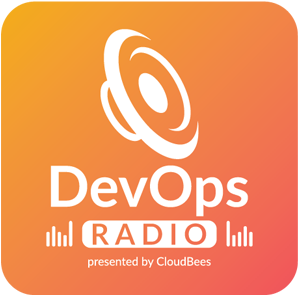 DevOps Radio
DevOps Radio
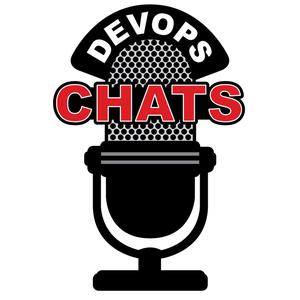 DevOps Chat
DevOps Chat
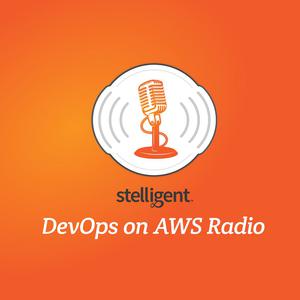 DevOps on AWS Radio
DevOps on AWS Radio
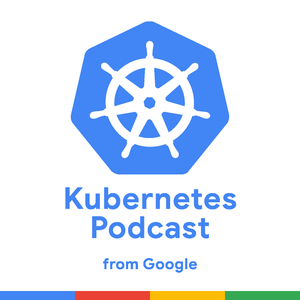 Kubernetes Podcast from Google
Kubernetes Podcast from Google
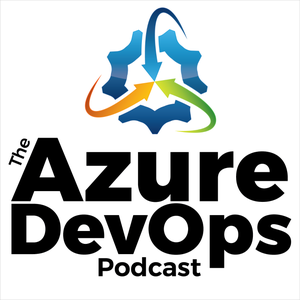 Azure DevOps Podcast
Azure DevOps Podcast
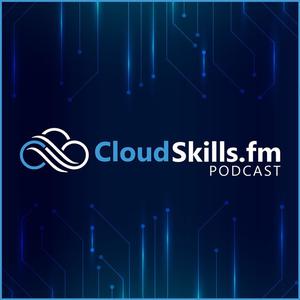 CloudSkills.fm
CloudSkills.fm